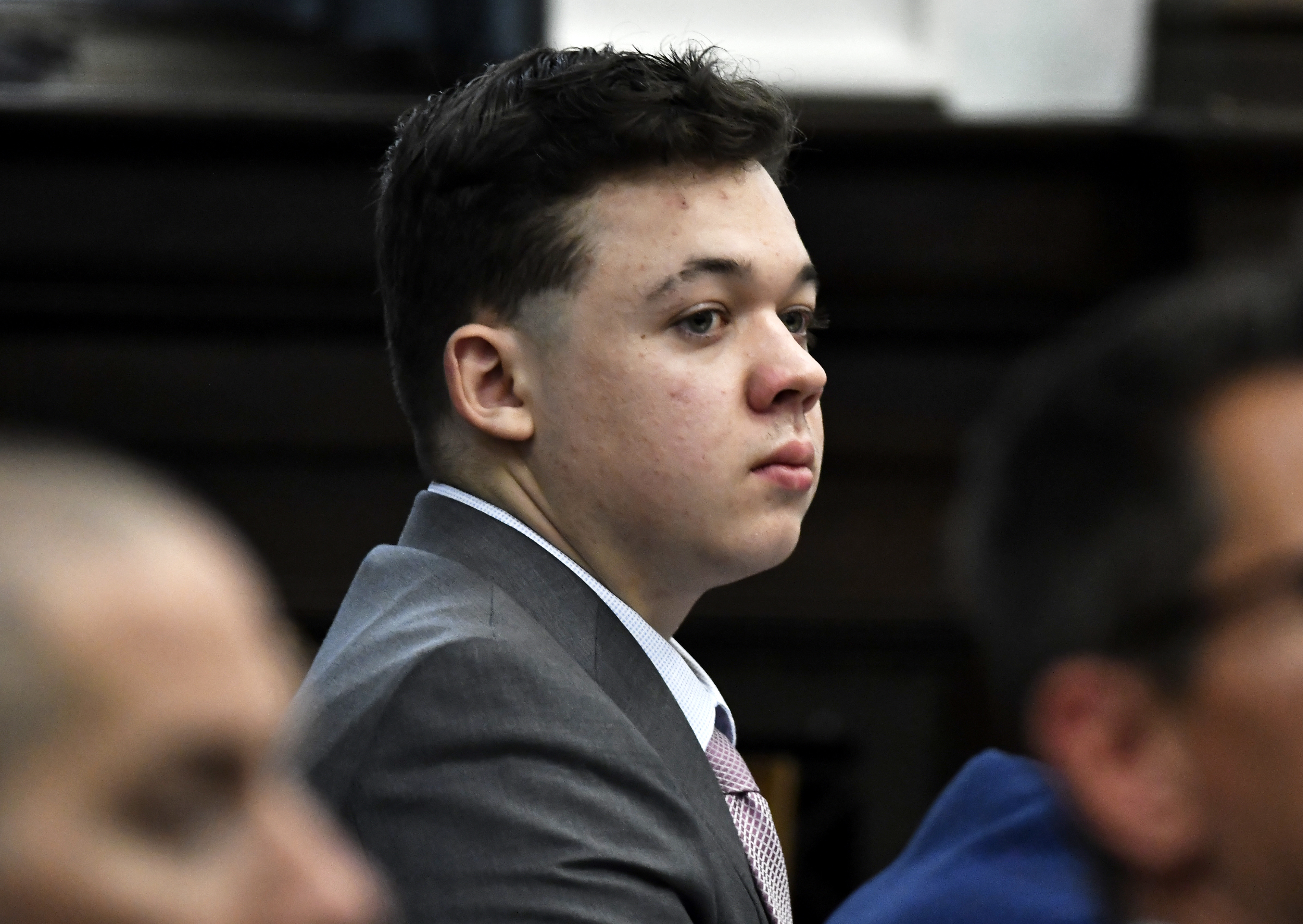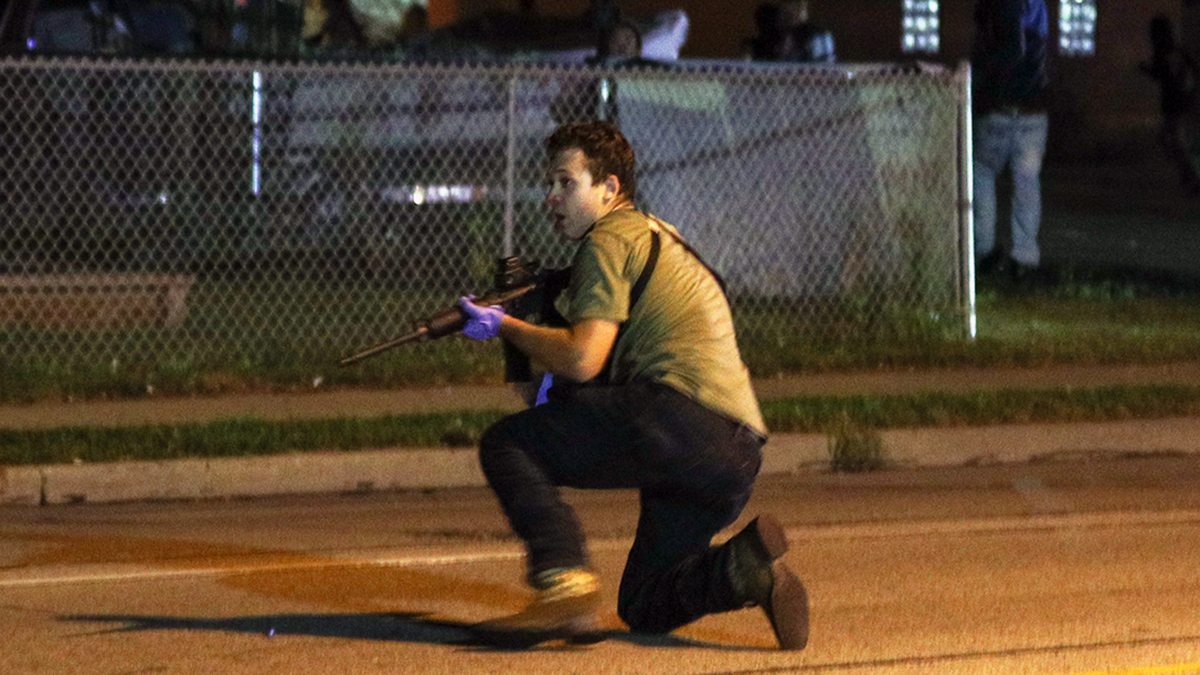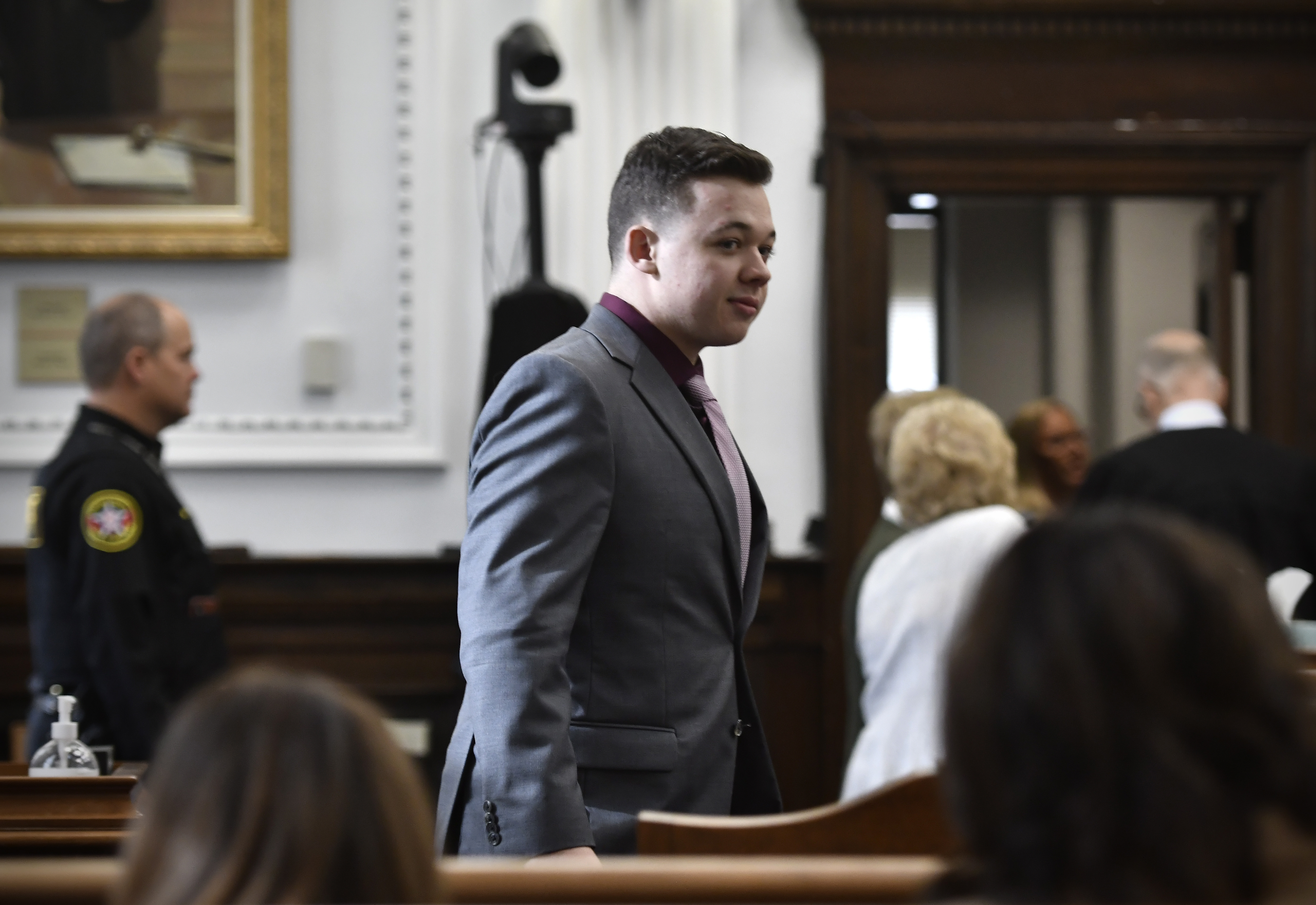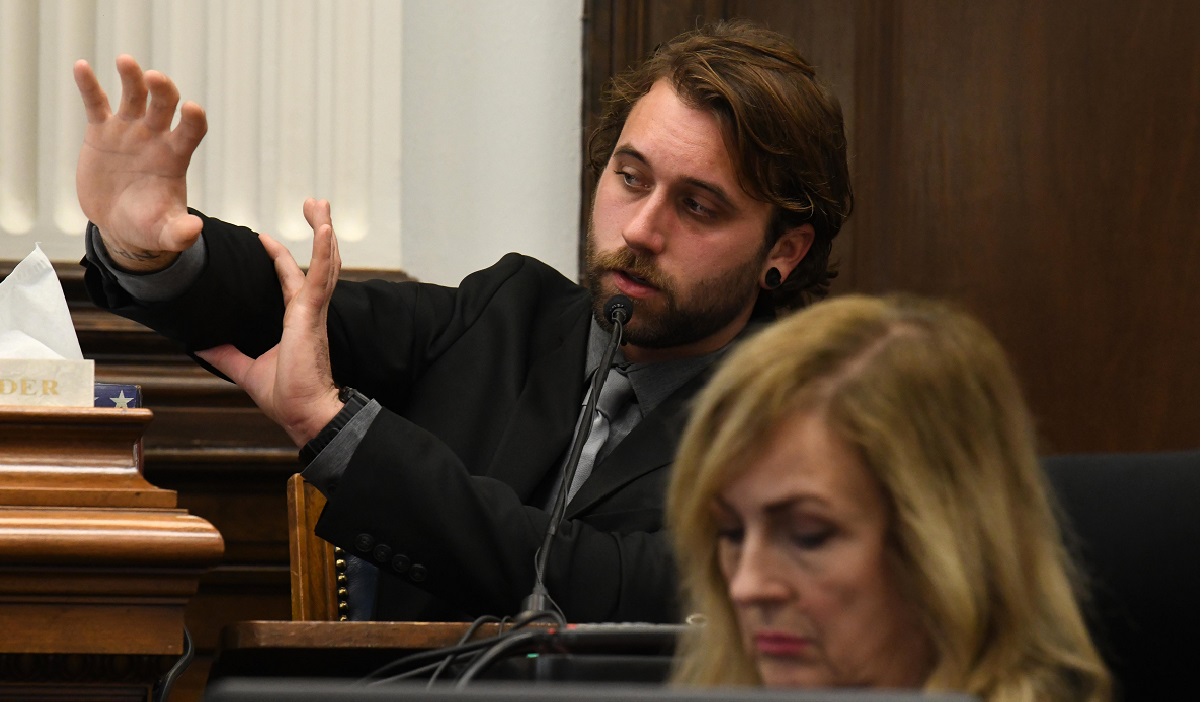Kyle Rittenhouse testified before a jury Wednesday about the moments he opened fire on three people during unrest in Kenosha, growing so emotional at times that the judge in the case called for a break.
The Illinois teen took the stand during his murder trial and said he believed he was acting in self defense when he opened fire during a night of turbulent protests in Kenosha after a man chased him down and put his hand on the barrel of Rittenhouse’s rifle.
Rittenhouse said that after he gunned down Joseph Rosenbaum, he shot another man in the street, Anthony Huber, after Huber struck him in the neck with his skateboard and grabbed his rifle.
When a third man, Gaige Grosskreutz, “lunges at me with his pistol pointed directly at my head,” Rittenhouse shot him, too, wounding him.
He said he was attempting to run to police for safety after the initial shooting, stating “I didn’t do anything wrong. I defended myself."
Rittenhouse said the violence began when he was walking toward a Car Source lot with a fire extinguisher to put out a fire.
That's when he testified that he head someone shout "Burn in hell."
"I respond with ‘Friendly, friendly, friendly!'" Rittenhosue said.
Feeling out of the loop? We'll catch you up on the Chicago news you need to know. Sign up for the weekly Chicago Catch-Up newsletter.
He said Rosenbaum was running at him from one side and another protester with a gun in front of him, “and I was cornered." He said that's when he began to run.
He said he heard another protester, Joshua Ziminski, tell Rosenbaum, “Get him and kill him.”
Rittenhouse said he then heard a gunshot “directly behind me,” and as he turned around, Rosenbaum was coming at him “with his arms out in front of him."
“I remember his hand on the barrel of my gun," Rittenhouse said.
Then he said, “I shoot him.” He also said he thought the object Rosenbaum threw — a plastic hospital bag — was a chain he had seen Rosenbaum carrying earlier that evening.
Rittenhouse said he intended to help Rosenbaum, but was in shock as someone else attended to Rosenbaum. Rittenhouse said he thought the “safest option” was to turn himself into police who were on the road nearby.
When defense attorney Mark Richards asked Rittenhouse why he didn’t keep running away from Rosenbaum, he said: “There was no space for me to continue to run to.”
Rittenhouse described attempting to run to safety amid shouts from a crowd yelling “get him” and “cranium him.” Rittenhouse said he believed the safest place to be would be in police custody.
As he fled to police, Rittenhouse said he was knocked down by man who drop-kicked him. He then opened fire but missed. As he got up following the kick, he said he was beaten by Anthony Huber with his skateboard. He fired once more, killing Huber.
As Rittenhouse sat up again, he said he then saw an armed Gaige Grosskreutz and the teen again opened fire, wounding him.
Rittenhouse began his testimony by discussing the start of the summer evening that ultimately turned deadly, stating that he had gone to the area to offer medical aid.
Immediately after he was called to the stand, Rittenhouse was asked “Did you come into downtown Kenosha looking for trouble?”
"No," he replied.
Rittenhouse testified that he lent his bullet proof vest to a friend because he thought he wouldn’t need it as he would be “helping people.” He said the vest was issued to him by the Grayslake Police Department, where he was an explorer.
LIVE COVERAGE: A live feed of Kyle Rittenhouse's murder trial is available when court is in session.
Rittenhouse stated there was no friction between himself and other protesters that evening, except for “the man who said he would kill me twice.” That man was identified by Rittenhouse as Rosenbaum.
When approached by Kenosha County Attorney Thomas Binger, Rittenhouse admitted to using deadly force. He denied intending to kill his victims, saying he “did what he had to do” to stop the threat to his life.
Rittenhouse's testimony comes on the second day since the defense began its case.
The defense called its first witnesses to the stand Tuesday after the prosecution rested following more than five days of witness testimony, some of which appeared to reinforce Rittenhouse's self-defense claim.
Rittenhouse, now 18, killed two men and wounded a third during a night of turbulent demonstrations against racial injustice in Kenosha in the summer of 2020.
The former police youth cadet from Antioch, Illinois, had gone to Kenosha with an AR-style semi-automatic rifle and a medical kit in what he said was an effort to protect property from the damaging protests that broke out over the shooting of Jacob Blake, a Black man, by a white Kenosha police officer.
While Rittenhouse is white, as were those he shot, the case has stirred debate over vigilantism, the right to bear arms and the unrest that erupted around the U.S. that summer over the killing of George Floyd and other police violence against Black people.
Wisconsin’s self-defense law allows someone to use deadly force only if “necessary to prevent imminent death or great bodily harm.” The jury must decide whether Rittenhouse believed he was in such peril and whether that belief was reasonable under the circumstances.





